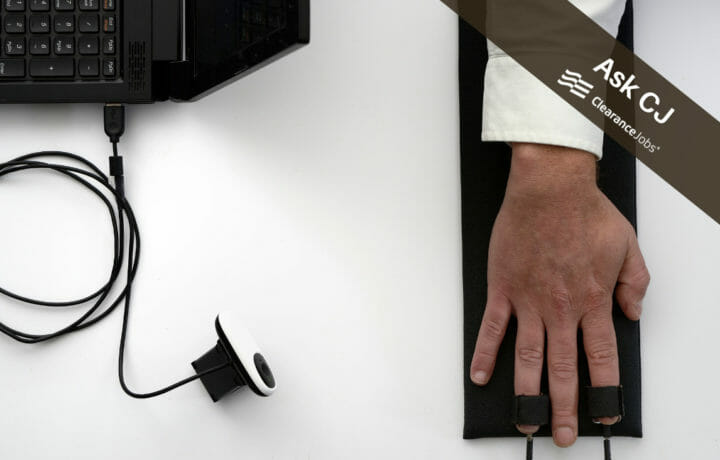This subscriber on the ClearanceJobsBlog was concerned about past crimes that may come up during a polygraph examination:
I am considering applying for a TS/SCI with FSP. This would be through Intelligence Community. I am hopeful to get it after reading the adjudicative guidelines.
I would like to understand what types of crimes get reported if they are revealed in a polygraph. My understanding is that some crimes do get reported (like if I admit to killing someone) but they don’t report all crimes. I am trying to understand where the line is drawn.
One investigator writes, “Generally, there’s the imminent threat to life limb and safety that you can imagine anyone is required to report. Then there’s insider threat indications that we report and crimes of a “seriousness” nature. I can’t, nor should anyone be telling you here what those are because that’s controlled information. Be honest, transparent, and show mitigating factors that your criminal conduct has not continued and will not.”
A signed consent form explaining the purpose and uses of information disclosed during the examination is obtained from the examinee prior to the session – the guidance also says:
“IC elements conducting polygraph examinations shall act upon and share relevant reported information of law enforcement, security, or CI concerns with appropriate officials consistent with D.6 of the guidance in accordance with civil liberties and privacy protections…”
The IC is committed to upholding the law, and a 1995 MOU – Reporting of Information Concerning Federal Crimes – sets forth the procedures on how officials should report to the Department of Justice.
The statute of limitations for some federal crimes is five years, however, there are some crimes with extended timeframes and others, like murder, espionage, or treason, that have no limit. In any security clearance case, consult an attorney regarding your specific situation.
View the full ODNI policy guidance on conducting polygraph examinations here.
If this individual has not filled out their SF-86, they should be very honest on the form. The most effective purpose of the polygraph is to find issues that weren’t reported on the SF-86, or instances of lying. Discrepancies between information listed on the form and provided in the polygraph could pose an issue.
If they have filled out the form, not disclosed something that should have been, and are just upgrading to the SCI + polygraph, you have some splainin’ to do… and should think long and hard on if you want to sit under the wires. You probably should brush up on the self-reporting requirements, as well.
Regardless of the SF-86, if they decide to move forward with the polygraph position, the main thing is while encountering a question that could be considered a gray area, take a breath, answer only what was asked, and stick to the facts. Don’t overthink. And if you have even the slightest concern that something you offered up in a polygraph could come up and lead to criminal prosecution – reach out to competent legal counsel before you agree to the polygraph.
Much about the clearance process resembles the Pirate’s Code: “more what you’d call guidelines than actual rules.” This case-by-case system is meant to consider the whole person, increase process security, and allow the lowest-risk/highest-need candidates to complete the process. However, it also creates a lot of questions for applicants. For this reason, ClearanceJobs maintains ClearanceJobsBlog.com – a forum where clearance seekers can ask the cleared community for advice on their specific security concerns. Ask CJ explores questions posed on the ClearanceJobs Blog forum, emails received, and comments from this site.



